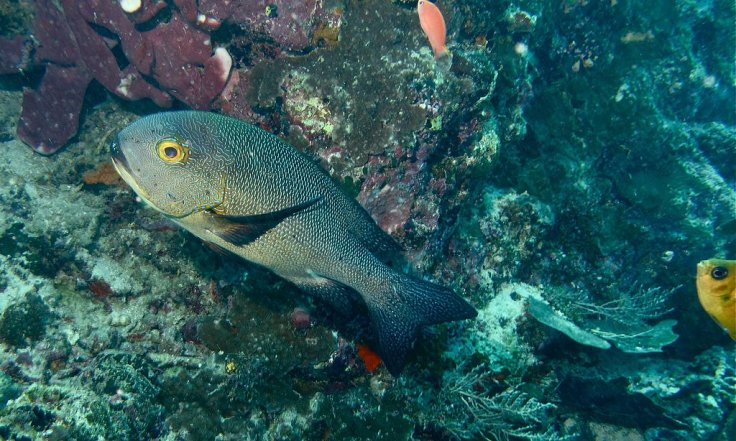The Australian Institute of Marine Science caught an unnamed midnight snapper in 2016. Recently the 81-year-old fish, which was found off the coast of Western Australia, has been revealed as the oldest tropical reef fish known to science.
The discovery was added in a new study, which is dedicated to finding out how changing ocean temperatures might affect the biology of the marine species. Dr. Brett Taylor, a fish biologist at the institute and the lead author of the study said that he may have used "some colorful language" when he realized the snapper specimen was 20 years older than the previous record for a tropical reef fish – a rockfish from the Caribbean. "The first thing I did was email my co-authors from Western Australia fisheries...am I seeing this right?" he added.
The Study
Along with the colleagues, Taylor aged the fish by examining small ear bones, known as otoliths that never stop growing and have visible bands like the rings of a tree. In the study, the researchers examined the ages of the marine species, which are red bass (Lutjanus bohar), midnight snapper (Macolor macularis), and black and white snapper (Macolor niger).

Dr. Stephen Newman, from the WA Department of Primary Industries and Regional Development, said that snappers-- a family of perciform fish, Lutjanidae—"make up a large component of commercial fisheries in tropical Australia and they're also a key target for recreational fishers". According to him, such long-lived fish were considered more vulnerable to fishing pressure.
Taylor said that a lot of these snapper species which are commercially harvested are from 40 to 60 years old that people have been buying. He also noted that he had separately analyzed ocean temperatures in the tropical Indian ocean where the oldest snapper and red bass, were caught—the latter one was a 79-year-old fish which was found in 1997.
Climate and the Ocean
"We talk about climate change being something in the future, but these 80-year-old fish saw a tremendous uptake of temperature [in the ocean] in their life spans," Taylor added.
According to him, as world seas get warmer, the lifespan and the growth of the fish would change and it is very important to understand as many economies, as well as communities, rely on fishing. Taylor explained that the main point here is to understand how temperate affects the growth and the lifespan of these species.
"By 2100, I don't think we will have any more 80-year-old midnight snappers", he said adding that "these locations will warm to a point that based on current models it will have an impact on their biology".









